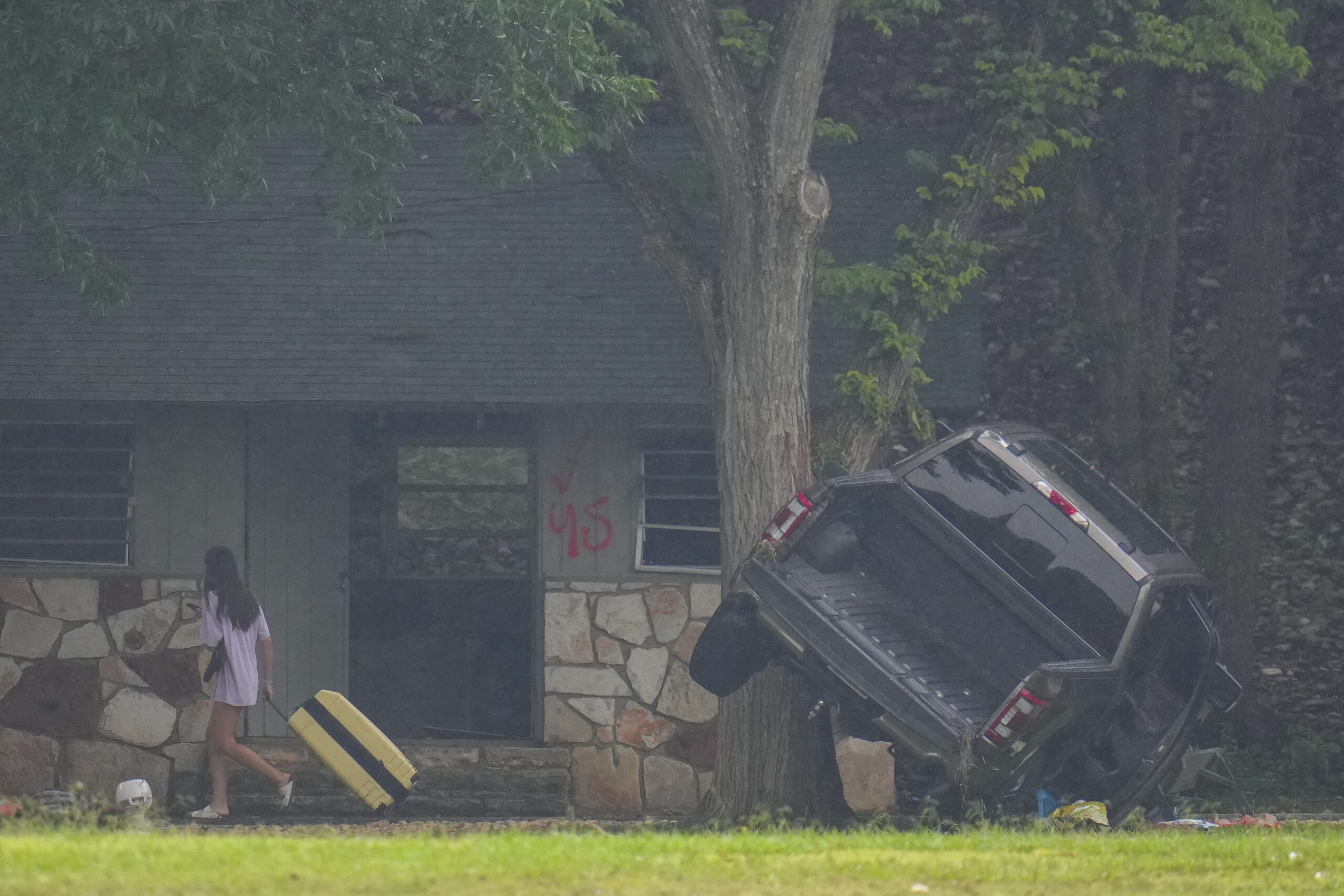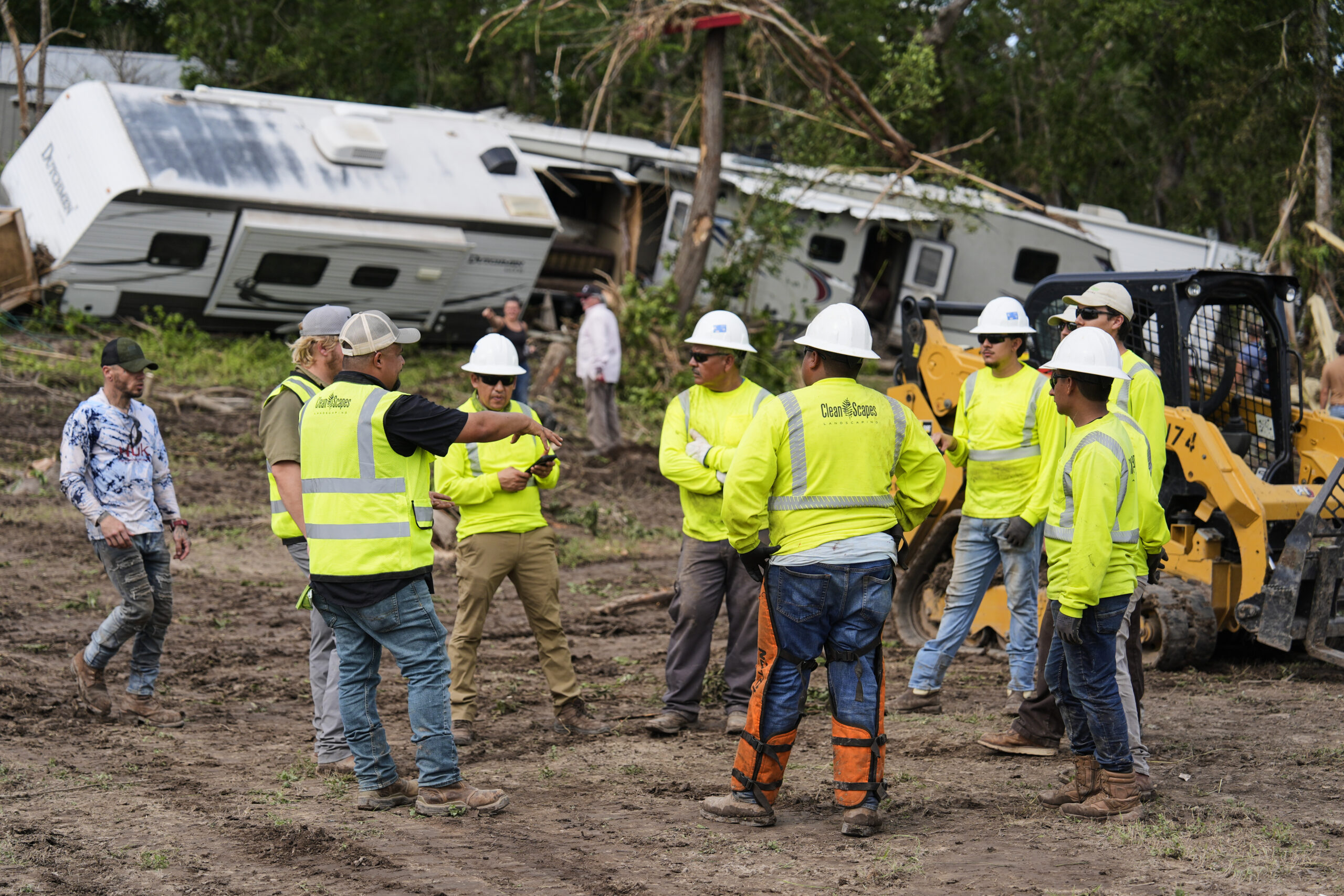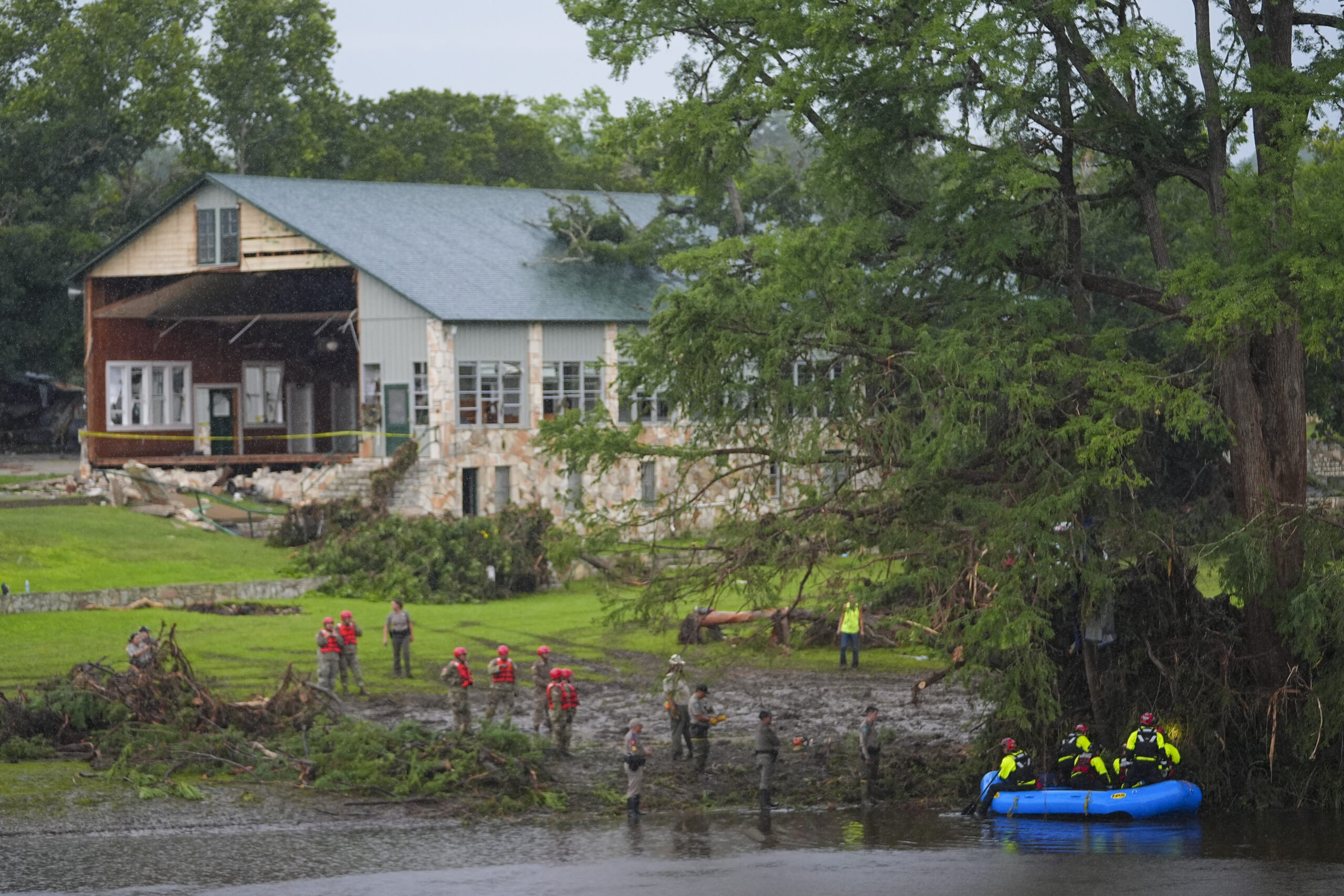From Texas Gov. Greg Abbott to local officials in Kerr County, leaders have repeatedly ignored or criticized questions seeking explanations on how more than 120 people, including 36 children, died in flash flooding along the Guadalupe River in the middle of the night on July 4. They say their focus is entirely on the search and rescue.
Gov. Abbott said “blame” is “the word choice of losers.”
But eight legal experts contend that now is the time to begin seeking and preserving evidence and investigating what happened and how it happened.
“This is a horrifying tragedy,” said Dallas lawyer Brent Walker, who represented clients in the 2022 Uvalde school shooting. “Parents of the children have two priorities right now — mourning the loss of their loved ones and wanting to make sure that this kind of tragedy never happens again.”
The eight attorneys, who specialize in representing victims and defendants in these kinds of catastrophic events, said the families and survivors are not thinking about money — only answers.
“It is hard to even talk about this because it is so horrible and still so raw, but this tragedy, it just shouldn’t happen,” Andy Payne, a partner at Payne Mitchell Ramsey in Dallas, told The Texas Lawbook. “I understand nobody can predict the weather, but you can certainly plan for it. It is not like this hasn’t happened before. There has been discussion about the need for an early warning system. There’s a reason for that.”

Payne, Walker and others agree that the likely targets of litigation include Camp Mystic and other campsites along the river, the River Inn Resort and Conference Center and various governmental agencies and private contractors involved in the emergency warning systems and the distribution of warnings to the public.
But the eight legal experts agree that plaintiffs or plaintiffs’ lawyers thinking they can use the Kerr County tragedy to reap large dollar verdicts are almost certainly going to be disappointed.
“It’s a tragic, tragic situation,” said Jeff Tillotson, a partner at Tillotson, Johnson & Patton in Dallas. “It feels too soon to talk about these issues. But for the victims, it is the first thing they turn to because they want accountability, and they want to know what happened and why it happened.”
Tillotson said litigation is often the only way to discover the truth.
Marc Gravely, an insurance law expert in Dallas, said any litigation or investigations of the tragedy will be “fact-intensive.”
If the cases involve nonprofit entities based outside of Texas or the allegations involve civil rights claims, then such cases would need to be handled in federal court.
Gravely said the plaintiffs will have up to two years to file any such lawsuits.
“If the allegations are straight gross negligence or breach of contract, then the cases would go to state courts, and the plaintiffs can decide where those cases are filed,” he said.
Gravely agrees that any efforts to recover monetary damages will not be easy.
“There will likely not be enough insurance coverage benefits to cover all the tragedy and terror that happened,” Gravely said. “Because of insurance law in Texas, those who wait to file claims will not have the benefit of the full insurance policies.”
Lawyers familiar with the insurance policies say there are caps of $500,000 for a single wrongful death claim and $1 million for all wrongful death claims combined. The result could be that the first families to settle claims will get larger shares of the coverage, they say.
“The big thing is how much is covered by insurance companies and the ability to collect on it,” said attorney Mike Lamson of Houston.
“Going against government entities will be difficult,” he said. “But the question is whether you can go against these individual camps for failing to have a warning system. But I don’t know what kind of warning system is possible.”
“Whether a reasonable person could have foreseen this and prevented the consequences,” Lamson added, “That will be the issue.”
While the governmental agencies may have made poor decisions that led to deaths in this tragedy, Tillotson said it is “going to be an uphill battle” to win such a case in court.
“Any case against government entities will be extremely difficult,” said attorney Don Tittle of Dallas. “They will have lots of governmental immunities and damage caps.”

Potential Camp Mystic Liability
The most obvious litigation target, according to the legal experts, is Camp Mystic, a nonprofit Christian summer camp where a couple dozen of the young girls who died were staying.
Payne said Camp Mystic officials put the young girls in “the danger zone” in cabins near the Guadalupe River.
“When you’re dealing with little kids who can’t make decisions on their own, you’re relying on the camp to be responsible,” he said. “There are [weather] alerts going out, and there’s nobody responding to it. It’s just incredible, honestly.”
Payne said Camp Mystic officials need to answer several key questions.
“Did they have an evacuation plan? Why were those cabins even where they were instead of on higher ground? Did they have a mechanism for somebody to be aware of weather alerts coming out so they could pull the trigger so to speak on evacuating those kids?” Payne said. “Clearly, they did not. Other camps, other places did evacuate.”
Camp Mystic’s emergency evacuation policies and practices need to be examined, according to Tillotson.
“The youngest girls were placed [in cabins] closest to the river,” he said. “Camps like this have duties to protect the kids who are there. In a high flood area, maybe you’re more cautious. Other camps did get evacuated. Questions will be asked why some did it and some didn’t.”
Walker said that while it is important to have emergency policies, they only matter if those operating the camp have been trained to carry them out.
“The moment there is a warning, the camp operators should have taken action to follow the plan,” he said. “When you have a camp built on a river that is known to be prone to flooding and the only people you have supervising small children are young teenagers themselves, you better have precautions set it in place.”
Another issue, according to Walker, was that the camp leaders took away the cell phones of the camp counselors at night.
“When you take away the primary form of communication, you better have another system of communication in place in case of emergencies,” he said.

Despite all that, collecting damages from Camp Mystic will not be easy.
“Most of these camps require the parents to sign waivers of liability when they drop off their children, and those waivers have been ruled valid in Texas,” said Houston lawyer Randy Sorrels. “The only way around the releases is to show gross negligence. And the releases do not apply to children, and so the estates of the children might have their own cases.”
Sorrels points to past lawsuits against the Houston Astros in which fans were struck and injured by foul balls.
Texas courts ruled that waivers of liability printed on the back of the baseball tickets were valid, and that, by purchasing the tickets, fans waived their legal right to sue the team if a foul ball injured them. But those same Texas courts also ruled that those ticket waivers cannot be enforced against minors, Sorrels said.
“You are not going to see a lot of deep pockets in this one, would be my prediction,” Sorrels said. “A lot of loss, not a lot of recovery in the end.”
Payne, however, said Camp Mystic sits on prime real estate, more than 800 acres along the Guadalupe River.
“The value could be very significant, $50 million to $100 million,” Payne said. “If they own the property outright, that probably would be the asset that would be able to provide value enough to resolve the cases on a significant amount.”
Payne adds that many of the parents of the children who died also went to Camp Mystic when they were young.
“The camp and its leaders are beloved,” he said. “Many families may decide against litigation even if they have a claim.”
Potential River Inn Liability
Sorrels and others agree that the legal liability for the owners of the River Inn in Hunt, Texas, is a completely different story.
In a post on Facebook earlier this week, prominent Houston criminal defense lawyer Randy Schaffer posted the heartbreaking and tragic moments in the predawn hours of July 4 at the River Inn, where he and Mollie Schaffer, his wife of five decades, were celebrating his 46th University of Texas School of Law class reunion.
The manager at the River Inn Resort banged on the Schaffers’ hotel room at 3 a.m. Friday morning, telling the couple that they needed to evacuate immediately because the Guadalupe River was overflowing its banks.
“Mollie asked him what we should do [and] he said to turn left out of the parking lot, drive about 100 yards, turn right, and drive to the top of the hill,” Randy Schaffer stated in his Facebook post. “That proved to be her death sentence. He should have unlocked a two-story building at the base of the parking lot and told the guests to go to the second floor.”
Minutes after the Schaffers fled in their car, the hotel manager unlocked the doors to the two-story building and led the other guests to safety. Just moments after that, the Schaffers’ car was engulfed by the floodwaters. As they tried to escape, Schaffer said the rapidly rising river quickly carried him to a pole near the riverbank.
“I wrapped my arms around the pole and climbed up until my head was above water,” Schaffer wrote. “I looked for and called to Mollie but didn’t see her or the car. She had been swept into the river.”
Sorrels said the River Inn’s liability is higher because the hotel’s manager had given specific evacuation instructions to the Schaffers.
“Randy’s case appears to be a fairly strong case against the Inn,” Sorrels said. “In that instance, there is a direct action with an invitee, which means that if the [River] Inn knew or should have known of an unreasonable dangerous condition and failed to warn or correct, then they have liability.”
Tillotson agreed, noting that Schaffer’s Facebook post points out that the hotel manager could have unlocked a building with a second floor that would have provided the Schaffers safety but instead gave the couple specific directions that led to Mrs. Schaffer’s death.
“It is one thing to tell people you need to evacuate, and it is another thing to tell them where to go,” Tillotson said. “You can take on serious duty and responsibility liability in telling people to go a certain way, and it ends up being tragic.”